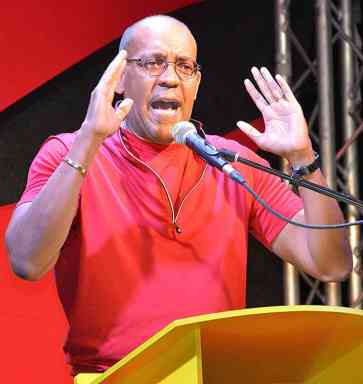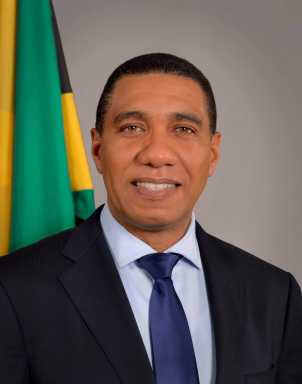Listeners:
Top listeners:
-
play_arrow
RadioJLR Just Press Play
Antigua and Barbuda
The Antigua and Barbuda government is saying that the cost of the legal defence in the United States court regarding the sale of the mega yacht Alpha Nero is now US$136,000.
A statement was issued following the weekly Cabinet meeting, reiterated that the court action had been triggered by operatives of the main opposition party, the United Progressive Party, but the party maintained its innocence in the matter.
The mega yacht, abandoned by Andrey Guryev, a Russian businessman who founded a fertiliser company, is being solicited by his daughter, Yulia Guryev-Motlokhov, who claims to be the rightful owner.
The attorneys for Yulia Guryeva-Motlokhov alleged in a March 11 filing in federal court that Browne’s administration failed to release the documents related to the US$40 million sale of the yacht.
Grenada
Grenada will host a three-day regional workshop aimed at advancing regional collaboration, technical capacity, and strategic planning for implementing the Caribbean Efficient and Green Buildings (CEGEB) project.
The Ministry of Climate Resilience, Environment, and Renewable Energy said the workshop was being held in partnership with the World Bank and other regional stakeholders.
“This high-level workshop represents a pivotal step forward in advancing regional collaboration, technical capacity, and strategic planning toward implementing the CEGEB project,” the ministry said.
It added that the initiative also aims to promote sustainable, energy-efficient, and climate-resilient building practices across the Caribbean.
Officials from Guyana, Grenada, and St Lucia, as well as the Organisation of Eastern Caribbean States (OECS) Commission and the Caribbean Centre for Renewable Energy and Energy Efficiency (CCREEE), are attending.
The primary objective of the workshop is to provide technical training, promote knowledge exchange, and facilitate in-depth discussions on the core components of the CEGEB project. This will include discussions on procurement strategies, with emphasis on the framework approach to a pooled procurement mechanism, fiduciary, and disbursement procedures, focusing on ensuring financial accountability and transparency.
“By bringing together regional expertise and institutional knowledge, the workshop will strengthen the foundation for effective, harmonized implementation of the CEGEB Project across participating countries. It also reaffirms a collective commitment to fostering a greener and more climate-resilient Caribbean,” the ministry said in its statement.
Guyana
The Guyana Defence Force (GDF) confirmed that its troops were recently attacked during riverine patrol operations along the Cuyuni River.
The incidents, which occurred between the Eteringbang and Makapa areas, involved armed individuals in civilian attire firing from the Venezuelan side of the river.
However, the Defence Force said no Guyanese soldier was hurt.
“On each occasion, the Guyana Defence Force executed a measured response, and no rank sustained any injuries,” it said.
The GDF said it remained resolute in its mission to protect Guyana’s territorial integrity and ensure the safety of its citizens and vowed to take the necessary action.
In February, while the GDF soldiers were on a resupply mission from their main base at Eteringbang to their outpost at Makapa, six soldiers were injured during an exchange of gunfire with civilian-clad men on the Venezuelan side of the border. It is believed that a number of them were killed or badly damaged.
Venezuela did not accept responsibility for the clash, but instead blamed the GDF for illegally entering Essequibo and shooting at Venezuelans. The Essequibo Region belongs to and is under Guyana’s control due to the settled land boundary by the 1899 Arbitral Tribunal.
Jamaica
Jamaica’s main opposition party, the People’s National Party (PNP), has welcomed the Constitutional Court’s decision that the Jamaican government’s several states of emergency (SoEs) over five years were unconstitutional.
The PNP’s general secretary, Dr. Dayton Campbell, had brought the case, and the court ruled that several SoEs declared between 2018 and 2023 were not made for any of the purposes outlined in Section 20 of the Jamaican Constitution.
Opposition Leader Mark Golding said the three-member panel of judges agreed that the multiple and extended use of SoEs between 2018 and 2023, as a routine crime-fighting tool, violates the constitution’s extraordinary emergency powers.
The constitutional court ruled that the Andrew Holness government breached the separation of powers principles in the constitution when it rolled out a series of SoEs in late 2022 without seeking parliamentary approval to extend them beyond 14 days.
In delivering the judgment, Justice Andrea Pettigrew-Collins said the proclamations issued on Nov. 15, Dec. 6, and Dec. 28, 2022, effectively allowed the executive to use a constitutional power reserved for parliament and were therefore void.
The court found that the SoEs declared on 15 separate dates, including January 2018, March 2018, April 2019, June 2020, and February 2023, were not made for a constitutionally valid purpose, were not demonstrably justified in a free and democratic society, and were inconsistent with the Jamaican constitution.
It also ruled that three so-called rolling proclamations made by the governor general in November and December 2022 amounted to a breach of the separation of powers, as they effectively bypassed parliament’s role in extending emergency powers beyond the constitutionally permitted 14 days.
The declarations meant that the challenged SoEs were void and unconstitutional.
St. Kitts-Nevis
St. Kitts-Nevis Prime Minister Dr. Terrance Drew strongly condemns what he describes as a “calculated and malicious attempt” to blackmail and extort his government.
Drew told reporters that foreign and local people had approached him with a demand for between US$40 million and US$100 million in exchange for suppressing the release of a video aimed at discrediting the country’s Citizenship by Investment (CBI) program.
Under the CBI, foreign investors are granted citizenship of the two-island federation in return for making a substantial investment in the country’s socio-economic development.
“People came to my office asking for 40 to 100 million dollars for that video not to be released. I told them no. That is extortion. That is blackmail, and (the video) is going to be filled with lies,” Drew said.
He made it clear that he would not succumb to threats or coercion and that no public funds would be used to settle a blatant attempt to undermine the integrity of the country or its CBI program.
“You’re not going to get one cent out of me,” he said, noting that he had instructed the Office of the Attorney General to pursue all appropriate legal avenues. He also confirmed that a globally respected international law firm had been retained to address the matter.
“This is a serious, serious matter. This is extortion of a state, of a country. No one has the right to walk into the Prime Minister’s Office to blackmail or extort because you want to bring out a nasty, malicious video to attack our country.”
“This is something that I will fight and fight to the end because the precedent must not be set in St Kitts and Nevis that people can walk into the Prime Minister’s Office (and make such demands). This will not be allowed to stand.”
He told reporters his government was committed to transparency, good governance, and protecting the national interest and vowed to pursue this matter to the fullest extent of the law.
St. Vincent and the Grenadines
St. Vincent and the Grenadines Prime Minister Dr. Ralph Gonsalves has ruled out providing solidarity to any of the five Organisation of Eastern Caribbean States (OECS) countries operating citizenship by investment (CBI) programs.
These include Antigua and Barbuda, Dominica, Grenada, St Lucia, and St Kitts-Nevis that operate CBI programs under which foreign investors are granted citizenship in return for making a substantial investment in the socio-economic development of these countries.
Gonsalves has defended his government’s opposition to the CBI after a heavily criticized response earlier this month by his Antigua and Barbuda counterpart, Gaston Browne, to suggestions by Gonsalves that the CBI program are inherently corrupt.
Browne accused Gonsalves of adopting the position of developed countries, which are opposed to any innovation that developing countries devise to carve out a space for themselves.
Gonsalves has described the CBI as selling passports. After coming to office in March 2001, he repealed the CBI law enacted by the NDP administration.
He noted the ruling earlier this month of the European Court that Malta’s CBI program commodified citizenship.
Compiled by Devika Ragoonanan
Written by: Adm
Similar posts
© 2025. All Rights Reserved by Radio-JLR



